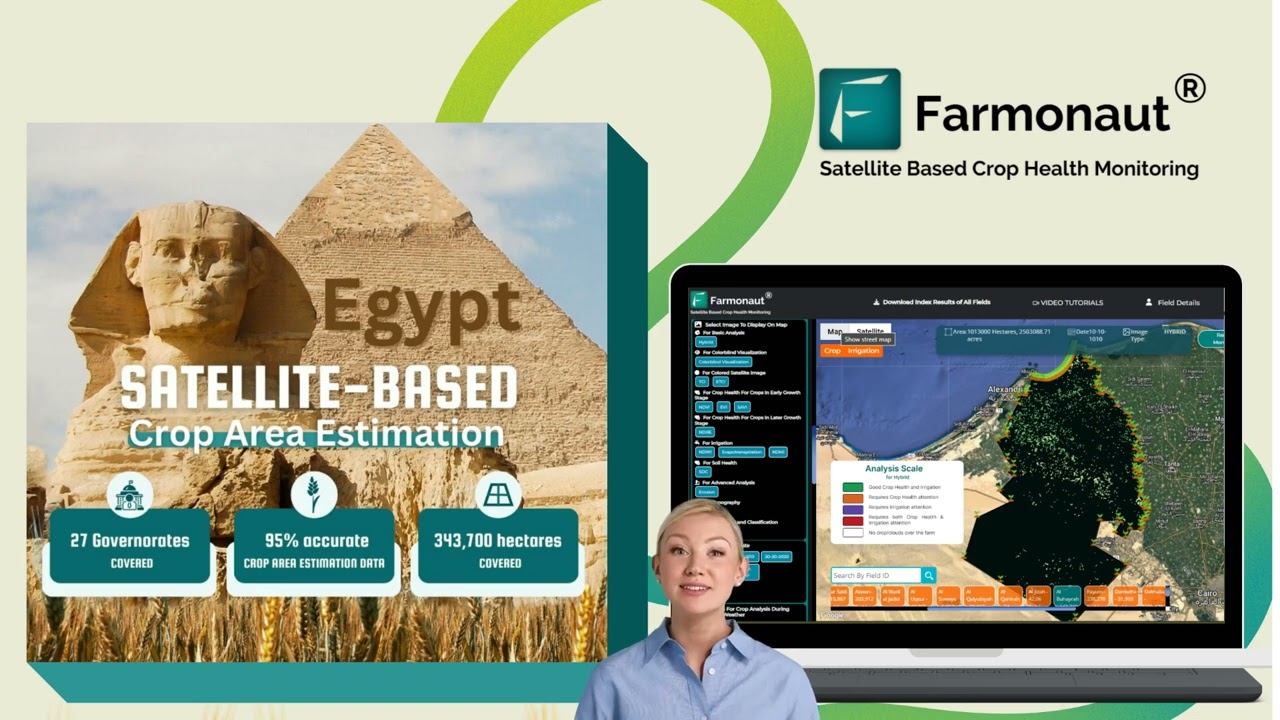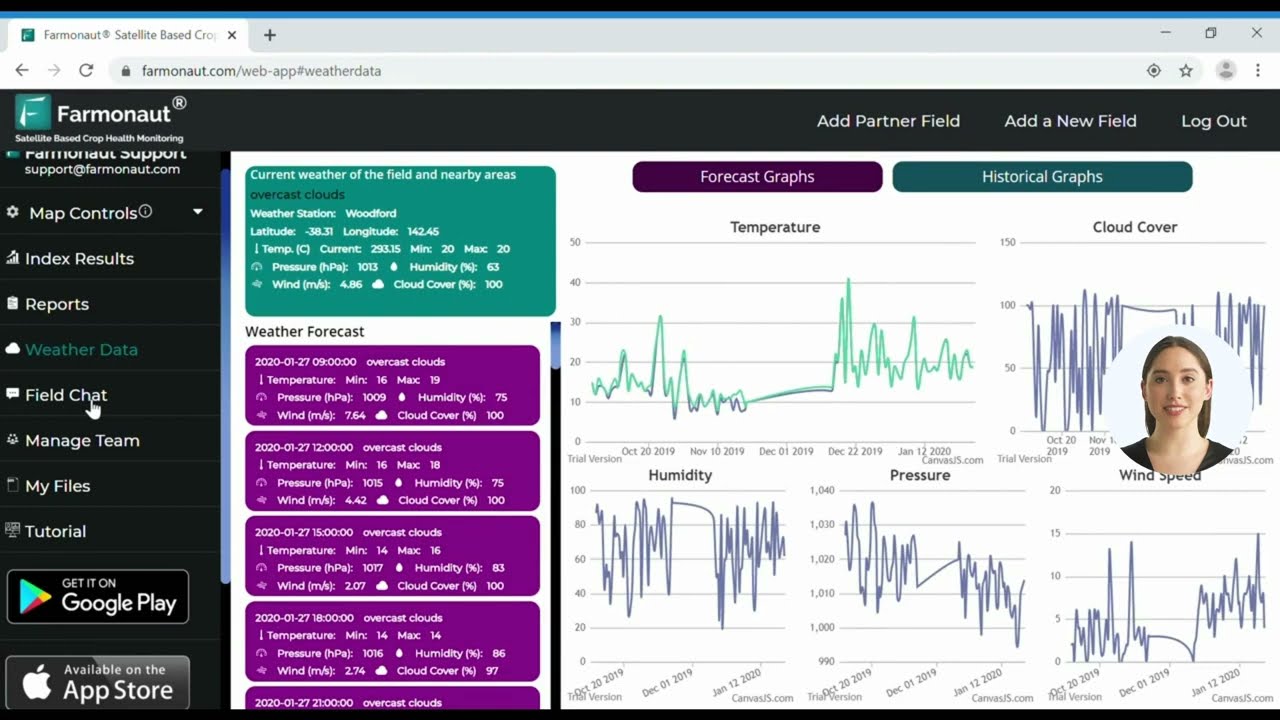Revolutionizing Cooperative Extension: The National Registry for Enhanced Agricultural Collaboration and Resource Sharing
“The NRCEPA database connects extension professionals across regions, potentially linking thousands of agricultural experts nationwide.”
In the ever-evolving landscape of agricultural education and outreach, we are witnessing a transformative shift in how cooperative extension programs operate and deliver value to communities across the nation. At the forefront of this revolution is the National Registry of Cooperative Extension Programs and Assets (NRCEPA), a groundbreaking platform that promises to reshape the way extension professionals collaborate, share resources, and impact agricultural practices.
As we delve into the intricacies of this innovative system, we’ll explore how the NRCEPA is set to enhance resource sharing, streamline project management, and foster unprecedented levels of collaboration among extension professionals. This comprehensive exploration will shed light on the potential of digital assets and collaborative tools in revolutionizing agricultural education and outreach.
The Evolution of Cooperative Extension: From Traditional to Digital
Cooperative extension programs have been a cornerstone of agricultural education and community development for over a century. These programs have traditionally relied on face-to-face interactions, local networks, and physical resources to disseminate knowledge and support farmers and rural communities. However, the digital age has ushered in new opportunities to enhance the reach and effectiveness of these vital services.
- Traditional methods often limited resource sharing to local networks
- Collaboration was typically confined to regional boundaries
- Project registration and material access were often decentralized and inconsistent
- Professional networking was largely dependent on in-person events and local connections
The NRCEPA emerges as a game-changing solution to address these limitations and propel cooperative extension into the digital era. By leveraging cutting-edge technologies and a nationwide database, the NCRPA aims to break down geographical barriers and create a more connected, efficient, and impactful extension network.
Understanding the National Registry of Cooperative Extension Programs and Assets
The NRCEPA is a comprehensive digital platform designed to serve as a centralized hub for all cooperative extension activities across the United States. This innovative registry offers a suite of features that collectively work to enhance collaboration, streamline resource sharing, and boost the overall impact of extension programs.
Key Features of the NRCEPA:
- Nationwide Database: A centralized repository of extension projects, materials, and resources accessible to professionals across the country.
- Project Registration: A streamlined system for registering and cataloging extension projects, making it easier to track progress and avoid duplication of efforts.
- Digital Asset Management: A robust platform for uploading, organizing, and sharing valuable educational materials, research findings, and outreach resources.
- Collaborative Tools: Integrated features that facilitate communication and cooperation among extension professionals, regardless of their geographical location.
- Professional Networking: A built-in network that connects extension experts, fostering knowledge exchange and mentorship opportunities.
By incorporating these features, the NRCEPA addresses many of the challenges faced by traditional extension methods and opens up new possibilities for innovation and impact in agricultural education and outreach.
The Impact of NRCEPA on Cooperative Extension
The introduction of the NRCEPA is set to have far-reaching effects on how cooperative extension programs operate and deliver value to their communities. Let’s explore some of the key areas where this innovative platform is making a significant impact:
1. Enhanced Resource Sharing
One of the most transformative aspects of the NRCEPA is its ability to facilitate seamless resource sharing across state lines and institutional boundaries. This nationwide access to digital assets means that:
- Extension professionals can tap into a vast library of up-to-date materials and research
- Best practices and successful program models can be easily replicated and adapted
- Smaller extension offices can benefit from resources typically available only to larger institutions
This democratization of resources ensures that all extension professionals, regardless of their location or institutional size, have access to the tools and information they need to serve their communities effectively.
2. Streamlined Collaboration
The NRCEPA’s collaborative tools are designed to break down silos and foster cooperation among extension professionals across different regions and specialties. This enhanced collaboration leads to:
- More interdisciplinary approaches to complex agricultural challenges
- Rapid dissemination of new research findings and innovative practices
- Increased opportunities for joint projects and multi-state initiatives
By facilitating these connections, the NRCEPA enables extension professionals to leverage collective expertise and resources, resulting in more comprehensive and effective solutions for the agricultural community.
3. Efficient Project Management
The project registration feature of the NRCEPA introduces a new level of efficiency and transparency to extension work. This centralized system allows for:
- Easy tracking of ongoing projects across different regions
- Reduction in duplication of efforts and resources
- Improved coordination of multi-state or national initiatives
- Enhanced ability to identify gaps in current extension offerings
This systematic approach to project management ensures that extension resources are used more effectively, maximizing the impact of programs and initiatives.

4. Professional Development and Networking
The NRCEPA serves as more than just a resource repository; it’s also a powerful networking tool for extension professionals. This aspect of the platform facilitates:
- Connections between experts in various agricultural specialties
- Mentorship opportunities for early-career extension professionals
- Virtual collaboration spaces for ongoing discussions and problem-solving
- Easy identification of potential partners for grant applications and research projects
By fostering these professional connections, the NRCEPA contributes to the continuous growth and development of the extension workforce, ensuring that the field remains dynamic and responsive to emerging agricultural challenges.
Technological Foundations of the NRCEPA
The NRCEPA’s ability to revolutionize cooperative extension is rooted in its advanced technological infrastructure. Understanding these technological foundations helps us appreciate the platform’s capabilities and potential for future growth.
Cloud-Based Architecture
The NRCEPA is built on a robust cloud-based architecture, which offers several advantages:
- Scalability to accommodate growing data and user bases
- High availability and accessibility from any location with internet access
- Enhanced security measures to protect sensitive agricultural data
- Seamless updates and maintenance without disrupting user access
This cloud-based approach ensures that the NRCEPA can evolve alongside the needs of the extension community, providing a flexible and future-proof solution.
Advanced Search and Discovery Tools
At the heart of the NRCEPA’s functionality are its sophisticated search and discovery tools. These features allow users to:
- Quickly locate relevant resources using natural language queries
- Filter results based on various parameters such as topic, region, or project type
- Discover related materials and projects through intelligent recommendations
- Track trends and popular topics within the extension community
These tools ensure that the wealth of information within the NRCEPA is easily accessible and navigable, maximizing its utility for extension professionals.
Integration Capabilities
The NRCEPA is designed with integration in mind, allowing it to connect seamlessly with other digital tools and platforms commonly used in extension work. This integration capability:
- Enables data sharing between the NRCEPA and institutional databases
- Facilitates the incorporation of NRCEPA resources into existing learning management systems
- Supports the use of API connections for custom applications and tools
- Allows for future expansions and integrations with emerging agricultural technologies
By prioritizing integration, the NRCEPA positions itself as a central hub in the broader ecosystem of digital agricultural tools and resources.
The Role of NRCEPA in Curriculum Development
One of the most significant impacts of the NRCEPA is its potential to transform curriculum development for agricultural education programs. This centralized platform offers numerous benefits for educators and curriculum designers:
Access to Diverse Educational Materials
- Educators can draw from a wide range of up-to-date resources to enrich their courses
- Curriculum designers can identify best practices and innovative teaching methods from across the country
- Students benefit from exposure to diverse perspectives and real-world examples from different regions
Collaborative Curriculum Development
- Educators can collaborate on creating and refining course materials
- Interdisciplinary approaches are facilitated through easy access to resources from various agricultural specialties
- Continuous improvement of curricula through shared feedback and iteration
Alignment with Industry Needs
- Curriculum developers can easily track emerging trends and technologies in agriculture
- Course content can be more readily aligned with the current needs of the agricultural sector
- Students are better prepared for the evolving job market in agriculture and related fields
By leveraging the NRCEPA for curriculum development, extension programs can ensure that their educational offerings remain cutting-edge, relevant, and impactful.
“Cooperative extension programs in the U.S. have a history spanning over 100 years, now revolutionized by digital assets and collaborative tools.”
Enhancing Agricultural Outreach through NRCEPA
The NRCEPA’s impact extends beyond internal collaboration among extension professionals; it also significantly enhances agricultural outreach efforts. This improved outreach capability is crucial for ensuring that the latest research and best practices reach farmers and rural communities effectively.
Streamlined Content Creation
With access to a vast repository of resources, extension professionals can more easily create tailored outreach materials:
- Customized fact sheets and guides based on local needs and conditions
- Multimedia presentations incorporating diverse visual and audio resources
- Interactive online modules that can be easily updated with the latest information
Multi-Channel Distribution
The digital nature of the NRCEPA supports multi-channel distribution of outreach materials:
- Social media-ready content for rapid dissemination of timely information
- Mobile-friendly resources that farmers can access in the field
- Integration with virtual conferencing tools for remote workshops and training sessions
Data-Driven Outreach Strategies
The NRCEPA’s analytics capabilities allow for more targeted and effective outreach:
- Tracking of resource usage to identify high-impact materials
- Analysis of user engagement to refine outreach approaches
- Identification of underserved areas or topics for focused attention
By leveraging these enhanced outreach capabilities, extension programs can ensure that their valuable knowledge and resources reach a wider audience more effectively than ever before.

The NRCEPA and Sustainable Agriculture Practices
As the agricultural sector faces increasing pressure to adopt more sustainable practices, the NRCEPA plays a crucial role in disseminating knowledge and facilitating the adoption of environmentally friendly farming methods.
Repository of Sustainable Practices
- Centralized database of proven sustainable agriculture techniques
- Case studies and success stories from various regions and farm types
- Resources on organic farming, regenerative agriculture, and conservation practices
Collaborative Research on Sustainability
- Platform for sharing ongoing research on sustainable agriculture
- Tools for coordinating multi-state studies on environmental impacts of farming practices
- Forums for discussing and developing innovative approaches to agricultural sustainability
Educational Resources for Farmers
- Easily accessible guides on transitioning to sustainable farming methods
- Interactive tools for assessing the environmental impact of current practices
- Training materials on implementing water conservation, soil health, and biodiversity measures
Through these resources and collaborative tools, the NRCEPA empowers extension professionals to be at the forefront of promoting and implementing sustainable agriculture practices across the nation.
Measuring the Impact of NRCEPA
To fully appreciate the value of the NRCEPA, it’s essential to have robust methods for measuring its impact on cooperative extension programs and the agricultural community at large.
Quantitative Metrics
- Number of registered users and active projects
- Volume and diversity of digital assets shared through the platform
- Frequency of resource access and downloads
- Number of collaborative projects initiated through the NRCEPA
Qualitative Assessments
- Surveys of extension professionals on the platform’s usefulness and impact
- Case studies highlighting successful collaborations facilitated by the NRCEPA
- Feedback from farmers and rural communities on the quality of outreach materials
Long-Term Impact Indicators
- Changes in agricultural practices attributable to NRCEPA-facilitated programs
- Improvements in crop yields or sustainability metrics in areas served by NRCEPA users
- Increased adoption rates of new technologies or methods promoted through the platform
By consistently tracking these metrics and gathering feedback, stakeholders can ensure that the NRCEPA continues to evolve and meet the needs of the extension community effectively.
The Future of Cooperative Extension with NRCEPA
As we look to the future, the NRCEPA is poised to play an increasingly central role in shaping the landscape of cooperative extension and agricultural education. Here are some potential developments and opportunities on the horizon:
Integration with Emerging Technologies
- Incorporation of artificial intelligence for personalized resource recommendations
- Virtual and augmented reality tools for immersive agricultural training experiences
- Integration with IoT devices for real-time data collection and analysis in the field
Expansion of Global Collaborations
- Potential for international partnerships and resource sharing
- Cross-border initiatives to address global agricultural challenges
- Enhanced ability to respond to international agricultural crises or opportunities
Evolving Role of Extension Professionals
- Shift towards more specialized and data-driven advisory roles
- Increased focus on digital literacy and technology adoption among extension staff
- Greater emphasis on facilitating peer-to-peer learning among farmers
As the NRCEPA continues to evolve, it will undoubtedly open up new possibilities for innovation, collaboration, and impact in the field of agricultural extension.
Comparative Analysis: Traditional vs. NRCEPA Methods
To fully appreciate the transformative impact of the NRCEPA, let’s examine a detailed comparison between traditional cooperative extension methods and the new NRCEPA approach:
| Aspect | Traditional Method | NRCEPA Method |
|---|---|---|
| Resource Sharing | Limited to local networks | Nationwide access to digital assets |
| Collaboration | Primarily regional, often siloed | Cross-state, interdisciplinary collaboration |
| Project Registration | Decentralized, inconsistent tracking | Centralized database, easy tracking and coordination |
| Material Access | Physical libraries, limited digital resources | Vast digital library, easily searchable and accessible |
| Professional Networking | Reliant on in-person events and local connections | Virtual networking platform, national reach |
| Data Analysis | Manual, often localized | Advanced analytics, nationwide trends |
| Outreach Efficiency | Variable, dependent on local resources | Streamlined, leveraging best practices nationally |
| Innovation Spread | Slow, often limited by geography | Rapid dissemination across the entire network |
This comparison clearly illustrates the significant advantages that the NRCEPA brings to cooperative extension programs, enhancing efficiency, collaboration, and impact across all aspects of extension work.
Challenges and Considerations
While the NRCEPA offers tremendous potential, it’s important to acknowledge and address potential challenges in its implementation and adoption:
Technology Adoption
- Ensuring all extension professionals have the necessary digital skills
- Providing adequate training and support for using the NRCEPA platform
- Addressing potential resistance to change among long-time extension workers
Data Security and Privacy
- Implementing robust security measures to protect sensitive agricultural data
- Ensuring compliance with data privacy regulations across different states
- Balancing open access with the need to protect proprietary information
Maintaining Local Relevance
- Ensuring that the national focus doesn’t overshadow local needs and contexts
- Developing mechanisms to adapt national resources to local conditions
- Preserving the personal, community-focused aspect of extension work
Funding and Sustainability
- Securing long-term funding for maintaining and updating the NRCEPA
- Developing a sustainable model for ongoing development and support
- Ensuring equitable access for smaller or less-resourced extension programs
Addressing these challenges will be crucial for the long-term success and impact of the NRCEPA in revolutionizing cooperative extension programs.
Conclusion: A New Era for Cooperative Extension
The National Registry of Cooperative Extension Programs and Assets (NRCEPA) represents a paradigm shift in how we approach agricultural education, outreach, and collaboration. By leveraging digital technologies and fostering nationwide connectivity, the NRCEPA is set to enhance the efficiency, reach, and impact of cooperative extension programs across the United States.
Key takeaways from our exploration of the NRCEPA include:
- Enhanced resource sharing and collaboration across state lines
- Streamlined project management and reduced duplication of efforts
- Improved curriculum development and professional networking opportunities
- More effective and data-driven agricultural outreach strategies
- Support for sustainable agriculture practices and innovative research
As we embrace this new era of cooperative extension, it’s clear that the NRCEPA will play a pivotal role in addressing the complex challenges facing agriculture in the 21st century. By breaking down silos, fostering collaboration, and leveraging collective expertise, the NRCEPA empowers extension professionals to make a more significant impact in their communities and beyond.
The future of cooperative extension is digital, collaborative, and more impactful than ever before. As we continue to refine and expand the capabilities of the NRCEPA, we look forward to a new chapter in agricultural education and outreach—one that promises to revolutionize how we share knowledge, support farmers, and build a more sustainable and prosperous agricultural future for all.
FAQs
- What is the National Registry of Cooperative Extension Programs and Assets (NRCEPA)?
The NRCEPA is a comprehensive digital platform designed to centralize and streamline cooperative extension activities across the United States. It serves as a hub for resource sharing, project management, and collaboration among extension professionals. - How does the NRCEPA benefit extension professionals?
The NRCEPA provides nationwide access to digital assets, facilitates cross-state collaboration, streamlines project management, and offers professional networking opportunities. It enhances the efficiency and impact of extension work. - Can the NRCEPA be integrated with existing extension tools and systems?
Yes, the NRCEPA is designed with integration capabilities, allowing it to connect with institutional databases, learning management systems, and other digital tools commonly used in extension work. - How does the NRCEPA support curriculum development?
The NRCEPA provides access to diverse educational materials, facilitates collaborative curriculum development, and helps align course content with current industry needs and trends. - What measures are in place to ensure data security and privacy on the NCRPA platform?
The NRCEPA implements robust security measures to protect sensitive agricultural data and ensures compliance with data privacy regulations across different states.
Explore Farmonaut’s innovative agricultural solutions:
For developers: Check out our API and API Developer Docs.




















